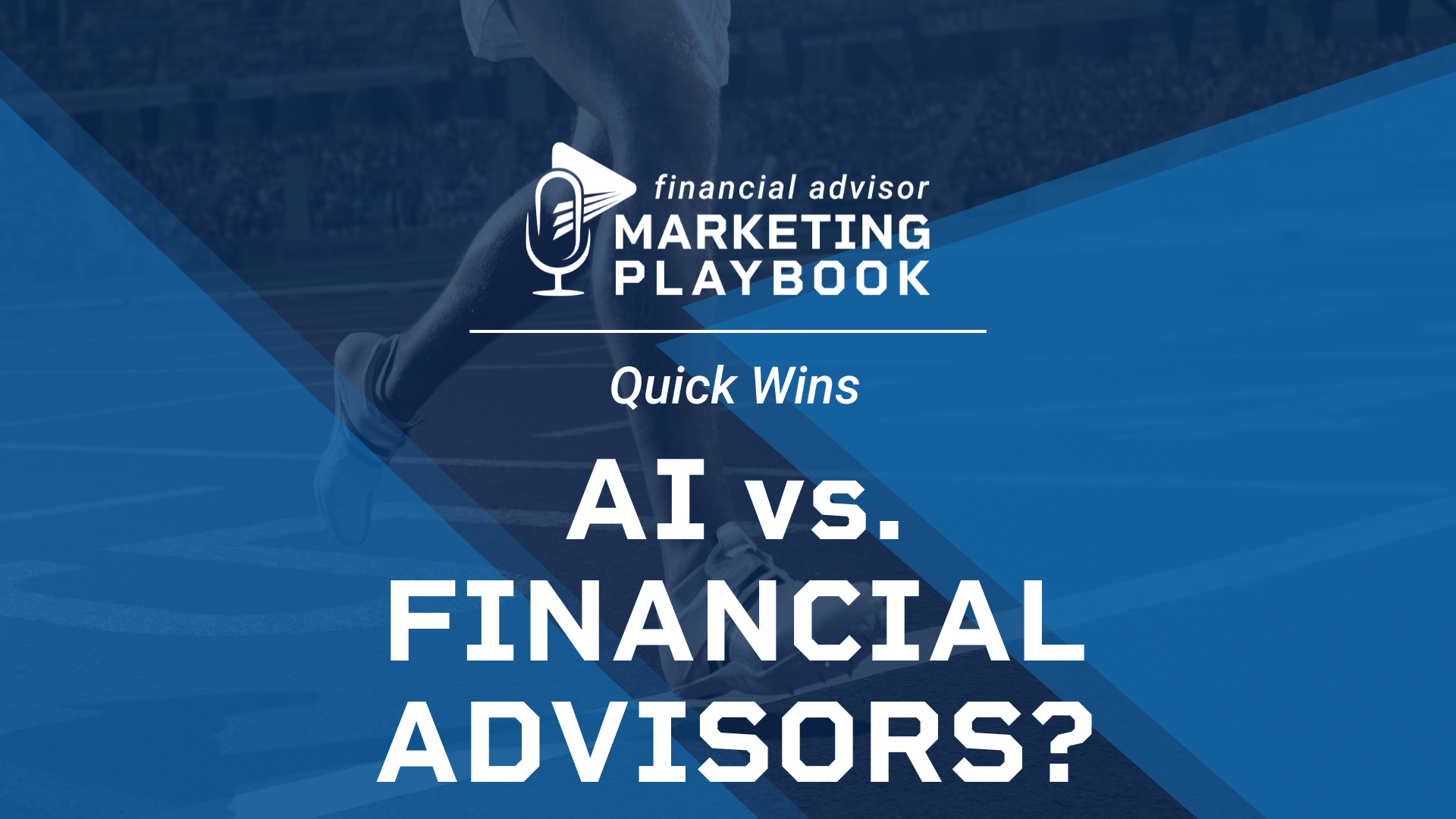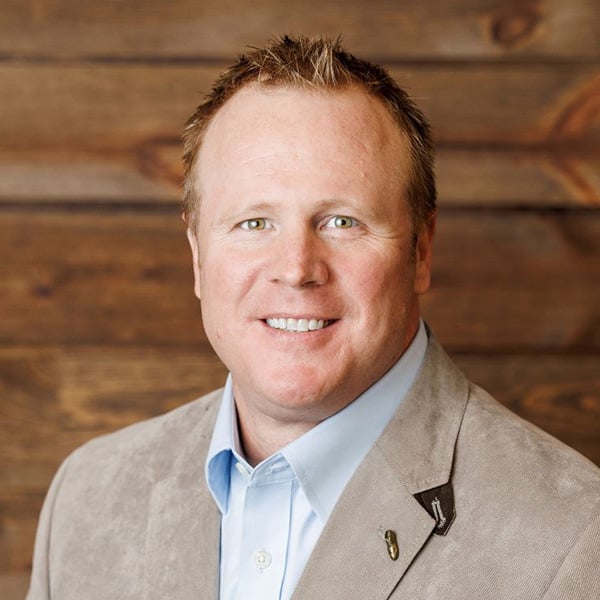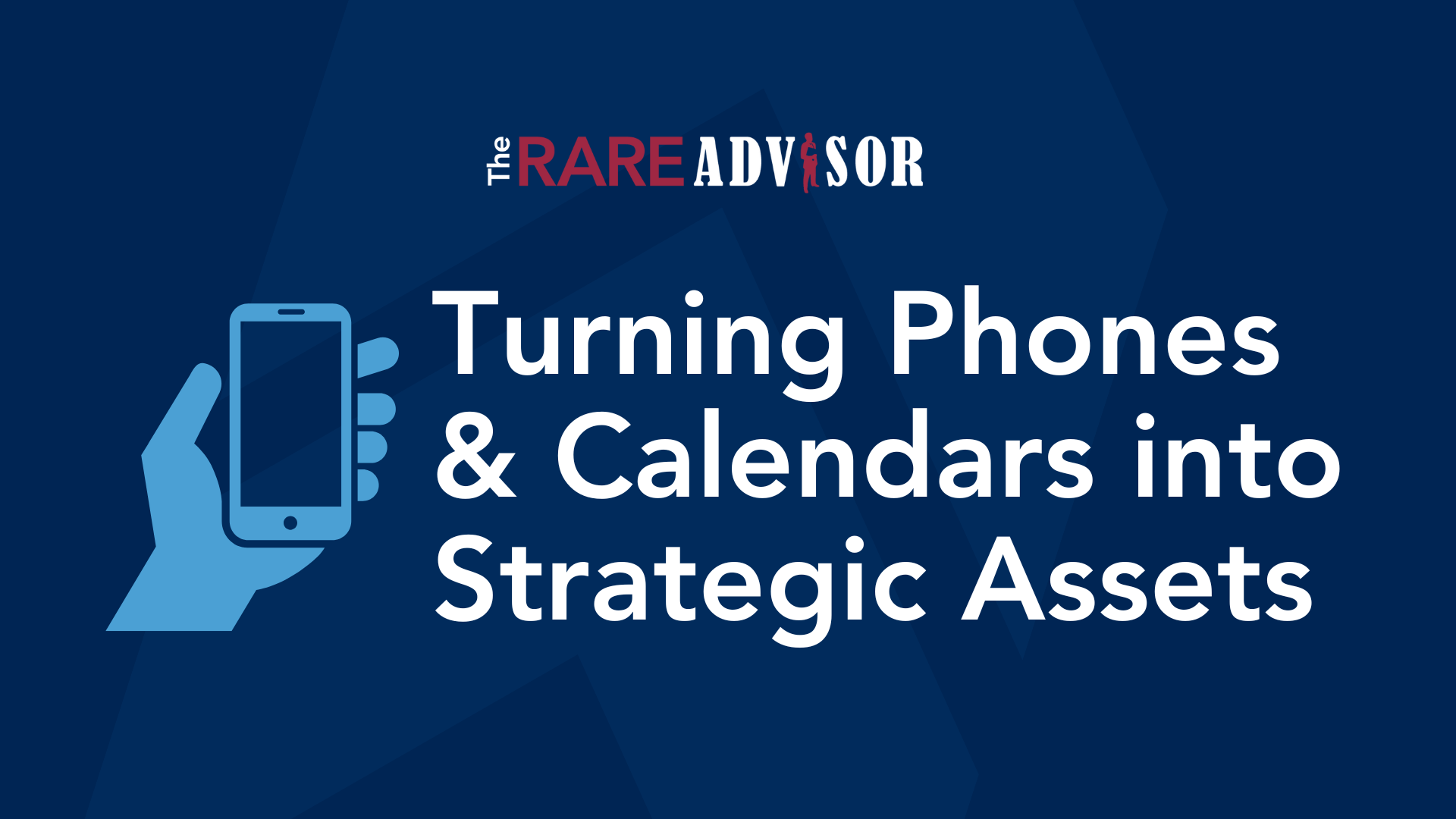AI vs. Financial Advisors: Strategies to Future-Proof Your Practice

AI is reshaping every industry, and financial advice isn’t immune. Are you prepared?
In this episode of The Financial Advisor Marketing Playbook, Mark Mersman unpacks a recent Microsoft study ranking personal financial advisors among the occupations most at risk of AI disruption—and explains why some advisors should be worried. More importantly, he outlines five practical strategies to stay relevant and thrive in the age of AI: doubling down on relationships, positioning yourself as a trusted guide, embracing holistic planning, staying tech-savvy, and deepening your niche expertise. Discover how to combine human connection with technology to build an unshakable practice in an AI-driven world. Whether you're a solo advisor, part of an RIA, or work at a larger firm, this episode gives you the roadmap to not just survive the AI revolution—but profit from it.
Summary:
The conversation opens with Mark Mersman reflecting on how frequently he finds himself in discussions around artificial intelligence and its growing role in everyday work. He mentions a recent Microsoft study that ranked occupations most at risk of being replaced by AI, as well as those least at risk. Unsurprisingly, the list of jobs highly vulnerable to automation included interpreters, translators, data-focused roles, and phone operators. What caught his attention, however, was that personal financial advisor appeared in the top 40 for occupations at risk. With only about 272,000 personal financial advisors recognized in the study, he questions whether the definition used was accurate but acknowledges that the finding raises important questions: should financial advisors be worried about AI replacing them, and if so, what can they do to protect their role?
He notes that this is not the first time the profession has faced questions of replacement by technology. When robo-advisors came onto the scene, similar concerns arose. While AI is indeed going to replace some financial advisors, Mark stresses that it will primarily impact those who fail to embrace the technology. The challenge is not about competing with AI but learning how to integrate it into an advisory practice in a way that enhances the client experience and strengthens human connection. He lays out five specific strategies advisors can adopt to remain indispensable.
The first is doubling down on relationships. Trust, empathy, and human connection cannot be replicated by AI, and these qualities are what set financial advisors apart. The ability to sit across from a client, read their emotions, reassure them during uncertainty, and connect on a deeper level is something machines will never achieve. Mark underscores that the core of an advisor’s advantage lies in their ability to form and nurture relationships. This naturally leads to broader questions about how many true relationships an advisor can manage effectively, but at its heart, the advice is clear: strengthen and deepen connections with clients.
The second strategy is positioning yourself as a guide. Advisors should embrace the role of integrating technology, including AI, into their processes and then clearly communicating that to clients. Rather than appearing threatened by AI, advisors should demonstrate how they use it to improve efficiency, research, analysis, content creation, and operational tasks. This allows them to spend more time on what matters most: personal interaction and guidance. Clients will appreciate knowing their advisor is at the forefront of innovation and that the human element is complemented, not replaced, by technology.
Third, Mark emphasizes the importance of focusing on holistic, comprehensive planning. Advisors who concentrate solely on investment management are more at risk of being replaced, as AI is already proving its capability in making investment recommendations and handling data-driven tasks. The differentiator lies in connecting money to broader life goals, values, and plans. Advisors who help clients tie their financial decisions to family, legacy, philanthropy, and life fulfillment will stand apart in ways that AI cannot replicate. In short, broadening the scope of advice from numbers to life planning is a safeguard against irrelevance.
The fourth key is staying educated and tech savvy. Advisors should not only adopt AI tools but also stay on the leading edge of other technology that can improve efficiency and client service. Demonstrating to clients that you understand and embrace new tools builds credibility and positions you as a forward-thinking professional. Clients want reassurance that their advisor is not stuck in the past but is leveraging innovation in ways that benefit them directly.
Finally, Mark highlights the value of deepening niche expertise. As general financial information becomes more widely accessible through AI tools, consumers will increasingly look for advisors who specialize in particular areas or who understand their unique situations. Whether it is focusing on business owners, retirees, or specific industries, specialization creates opportunities to deliver insights and guidance that generic AI platforms cannot. Advisors who carve out niches and tailor their services will have a significant edge.
Mark also acknowledges that there are many things AI will simply do better than humans. Machines excel at crunching numbers, identifying patterns, drafting documents, scaling processes, and providing behavioral nudges at just the right time. These efficiencies will continue to grow, and it is unrealistic to think that human advisors can outcompete AI in those areas. Instead, the human advantage lies in what AI cannot do: provide empathy, demonstrate emotional intelligence, engage in values-based conversations, and exercise ethical and moral judgment. Financial advisors who focus on connecting money with values, helping clients navigate family harmony, legacy decisions, and philanthropic goals will continue to deliver value that technology cannot match. The trusted accountability factor also plays a role—clients may rely on AI for general information, but they still crave the confidence and reassurance of another human being helping them make difficult decisions.
The conversation concludes with Mark encouraging advisors to embrace AI rather than fear it. The future is already here, and the opportunity lies in understanding how to integrate technology in a way that enhances the client experience. By combining the efficiency and power of AI with the irreplaceable human qualities of trust, empathy, and moral reasoning, financial advisors can position themselves to not only survive but thrive in the evolving landscape. The key takeaway is that AI should be seen as a tool that complements, not replaces, the work of an advisor, and those who adapt will emerge stronger and more relevant than ever.
Transcript:
Mark Mersman, Chief Marketing Officer at USA Financial - Welcome back to the playbook. So every week, it seems like now I'm getting into a conversation around the topic of AI. And I think everybody, you know, it's on a, it's top of everybody's mind right now. It seems like every week there's new tools being introduced. And I wanted to share with you, cause I just recently saw a study, maybe you've seen this, but there was a study published by Microsoft pretty recently.
And it looked at the top 40 occupations that were at the highest risk of AI replacing them. And then it had another list of the top 40 that had the lowest risk, I guess, of being replaced. And on the top 40 list of highest AI applicability score, in other words, the propensity or possibility that the job might be replaced by AI, the vast majority of them you look at and it makes sense, right? Interpreters and translators, obviously we're already seeing what AI can do in that world. You know, anything that is kind of data centric, crunching numbers, those types of things that can be automated phone operators. But what struck me as really interesting, and I did not expect to see this, but personal financial advisor was listed in the high thirties in terms of a risk or maybe high twenties.
And so number one, was interesting about this was it has only 272,000 personal financial advisors listed as part of occupation. I'm not so sure that number is exactly accurate, but I guess it really depends on your definition of personal financial advice. the point is, is this accurate? And should advisors be worried about their jobs being replaced by AI? And I think you know, the financial advice industry isn't, this isn't new. Uh, you know, a number of years ago when robo-advisors came out, that was a question that came up quite a bit. Um, I think the real piece of this is understanding what you can do as a financial advisor to ensure that you won't be replaced by AI. Um, because the truth of the matter is many financial advisors will be replaced by AI and it's going to be those that aren't embracing it.
So let's talk about five really simple things that you can do to remain successful in the age of AI. The first is you have to begin doubling down on relationships. know, trust, empathy, human connection, none of that is replicated by technology, by AI. And so the ability to sit across from a client, read their emotions, reassure them during uncertainty, is really a core advantage from a human connection standpoint. So double down on the relationships. Hopefully you've been doing that already. This brings into question another conversation around how many conversations or how many relationships can you truly manage as an advisor. So that's a conversation for another day. The second thing you should look at doing is positioning yourself as a guide.
Now, what do I mean by that? Hopefully you're already doing a little bit of this because your role in their lives as a financial advisor is really to be a guide. And you'd really want to embrace the fact that rather than competing with AI, we're going to integrate it. We're going to use it inside of our process to make us more efficient so we can double down on the relationships and position ourselves as the guide and position yourself as somebody who is pulling in different pieces of technology like AI to enhance the client experience. So you're going to leverage it maybe for research, for analysis, for content creation, for operational efficiency. So communicate that to your clients. I think that they're going to appreciate the fact that you are leveraging technology and you're combining the human element of the relationship alongside of it. The next one is really focusing on comprehensive holistic planning, whatever you know, cliche term you want to use, you know, for those that are singularly focused on perhaps investment management, the reality for that audience is that their job might be at greater risk to be replaced from an AI standpoint. I mean, we're already seeing AI handling some investment management and investment recommendations. So it will be curious to see where that goes in the future. But for those of you that can focus on bigger picture planning, holistic planning, life planning, advisors that can connect money to values and goals and life planning are those that are going to ultimately leap ahead. The next one is staying educated and tech savvy. mean, obviously we spoke to this, but those advisors that adopt AI tools and beyond just AI other technology, showing clients that you are on the leading edge will certainly help build credibility. And the last thing I want to point out is deepening your niche expertise. You know, if there's ever been a case for having some specialization, this would be it. Because I think more and more consumers are definitely going to be able to get general information as it relates to financial planning from AI tools. And so understanding and specializing to really cater to a niche audience is going to be a big opportunity as we move forward in the world of AI. I mean, we have to embrace and accept the fact that AI is going to do things better than humans. They're going to do, it's going to do a lot of things better than humans. mean, it's going to crunch data way better. It's going to recognize patterns. It's going to be able to draft documents and submit things. It's going to be able to scale in a way that
Simply put, humans can't. There can be a little bit of behavioral nudging that can go on with AI that we can automate. And I think that we're going to continue to see technology and tools kind of push that. But it's still going to have to be coupled along with the human connection to really get people over the edge to make some of those decisions when they're prompted at the right time.
But the reality is humans can do a number of things better than AI and AI will never get there. Empathy, emotional intelligence, values-based conversations. If you're not doing some of that now, I would encourage you to help your clients connect their money to their life goals, their legacy, philanthropy, their family harmony. Those are big deals for clients and something that AI isn't going to touch. I also think that the trusted accountability side of things, you know, I think
With AI, we've seen a lot of inaccuracies and I think people are going to be a little bit suspect. And I think at the core, we want to trust one another as people. So I think that that's a big piece and an opportunity. And the other part is the ethics and the moral reasoning. Humans are going to be much more capable of executing on that and really help their clients think through questions like or what should I do or what can I do? I think that there's going to be some of that judgment based stuff that the human connection is going to be critical. So just a few tips, obviously, as we embrace the world of AI, we have to understand how do we integrate it? How do we enhance the experience to make sure that number one, you're staying on top of it. You're demonstrating to your clients that this is something the future is here and you embrace it. So hopefully that's helpful. Enjoy the rest of your day. Take care.
--
The Financial Advisor Marketing Playbook is a podcast/video series for high-performing financial planning professionals that are committed to improving their craft, helping their clients, and growing their business. Hosted by Mark Mersman, Chief Marketing Officer at USA Financial, this series contains a wide variety of content – from quick win ideas to long-form interviews, each episode provides actionable marketing ideas and insights that can be implemented easily into your practice. From digital marketing to traditional direct-response marketing, each episode delivers straight-forward and engaging content that any financial professional can use to improve their bottom line and grow their practice.
Financial Advisor Marketing Playbook is also a podcast! Subscribe today via Apple Podcasts or your preferred podcast listening service for easier on-the-go listening.
Author Info

Mark Mersman is the Chief Marketing Officer at USA Financial, joining the firm in 2004. He has held numerous roles within the company prior...
Related Posts

Access by Design: Turning Phones and Calendars into Strategic Assets
In this episode of The RARE Advisor, host Aaron Grady and practice management consultant Allan Oehrlein continue their discussion on time allocation by exploring what comes next: operationalizing structure across the entire advisory team. They break down why the phone is the “front door” to the firm and the calendar is the “engine room,” and how elite practices use standardized phone scripts, the strategic power of the word “unavailable,” intentional scheduling rules, and team empowerment to build consistency, capacity, and trust. Aaron and Allan outline how designed access—not unlimited access—creates scalability and a stronger client experience, while reducing reactivity, burnout, and advisor bottlenecks. They also offer practical challenges advisors can implement immediately to redesign their phone and scheduling processes in ways that elevate both team culture and enterprise value.

The Psychology Behind Your CTA: Why Prospects Don’t Click “Book a Call”
In this episode of Financial Advisor Marketing Playbook, Mark Mersman breaks down the real psychological barriers that stop prospects from clicking “book a call” on an advisor’s website—and how small language and design changes can dramatically improve conversions. You’ll learn practical, compliant fixes including softer CTA language, expectation statements, empathy‑based messaging, simplified design, and reassurance techniques that lower emotional friction. If you want a website that encourages prospects to take the first step confidently, this episode delivers actionable guidance advisors can implement immediately.

5 Marketing Trends for Financial Advisors in 2026
Have you noticed how fast technology is changing the way you work with clients? Artificial Intelligence (AI) isn’t just a buzzword anymore; it’s transforming how you connect, deliver value, and grow. As financial advisors, you're positioned at the unique intersection of technology, finance, and marketing—and the pace of change shows no signs of slowing down.

Access by Design: Turning Phones and Calendars into Strategic Assets
In this episode of The RARE Advisor, host Aaron Grady and practice management consultant Allan Oehrlein continue their discussion on time allocation by exploring what comes next: operationalizing structure across the entire advisory team. They break down why the phone is the “front door” to the firm and the calendar is the “engine room,” and how elite practices use standardized phone scripts, the strategic power of the word “unavailable,” intentional scheduling rules, and team empowerment to build consistency, capacity, and trust. Aaron and Allan outline how designed access—not unlimited access—creates scalability and a stronger client experience, while reducing reactivity, burnout, and advisor bottlenecks. They also offer practical challenges advisors can implement immediately to redesign their phone and scheduling processes in ways that elevate both team culture and enterprise value.

The Psychology Behind Your CTA: Why Prospects Don’t Click “Book a Call”
In this episode of Financial Advisor Marketing Playbook, Mark Mersman breaks down the real psychological barriers that stop prospects from clicking “book a call” on an advisor’s website—and how small language and design changes can dramatically improve conversions. You’ll learn practical, compliant fixes including softer CTA language, expectation statements, empathy‑based messaging, simplified design, and reassurance techniques that lower emotional friction. If you want a website that encourages prospects to take the first step confidently, this episode delivers actionable guidance advisors can implement immediately.

5 Marketing Trends for Financial Advisors in 2026
Have you noticed how fast technology is changing the way you work with clients? Artificial Intelligence (AI) isn’t just a buzzword anymore; it’s transforming how you connect, deliver value, and grow. As financial advisors, you're positioned at the unique intersection of technology, finance, and marketing—and the pace of change shows no signs of slowing down.

